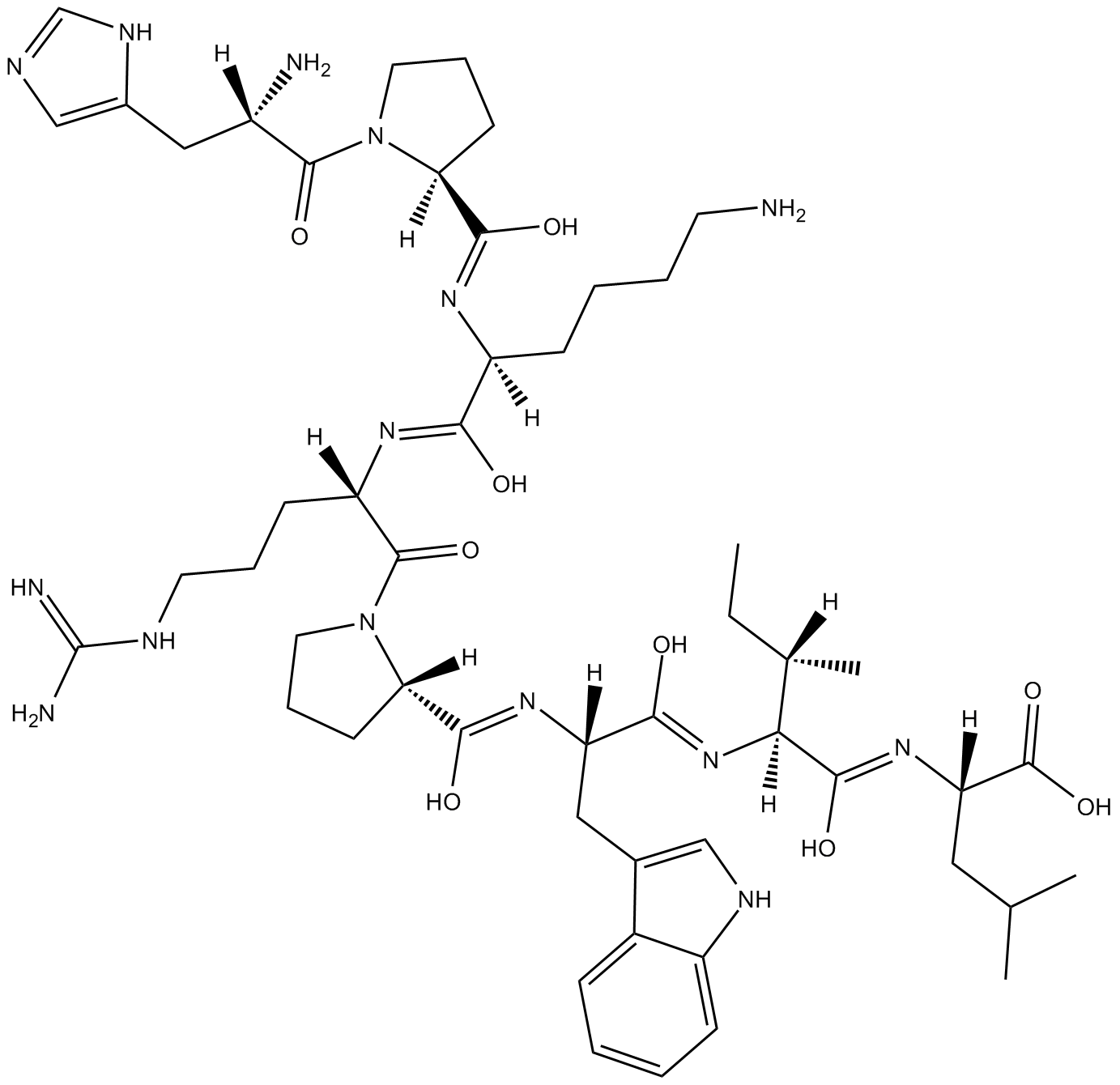Neurotensin Receptors
Neurotensin receptors are transmembrane receptors that bind the neurotransmitter neurotensin. Two of the receptors encoded by the NTSR1 and NTSR2 genes contain seven transmembrane helices and are G protein coupled. The third receptor has a single transmembrane domain and is encoded by the SORT1 gene. Neurotensin (NTS) is a 13-amino-acid peptide that functions as both a neurotransmitter and a hormone through the activation of the neurotensin receptor NTSR1, a G-protein-coupled receptor (GPCR). In the brain, NTS modulates the activity of dopaminergic systems, opioid-independent analgesia, and the inhibition of food intake; in the gut, NTS regulates a range of digestive processes.
Produkte für Neurotensin Receptors
- Bestell-Nr. Artikelname Informationen
-
GC19023
AF38469
AF38469 ist ein selektiver, oral bioverfÜgbarer Sortilin-Inhibitor mit einem IC50-Wert von 330 nM.
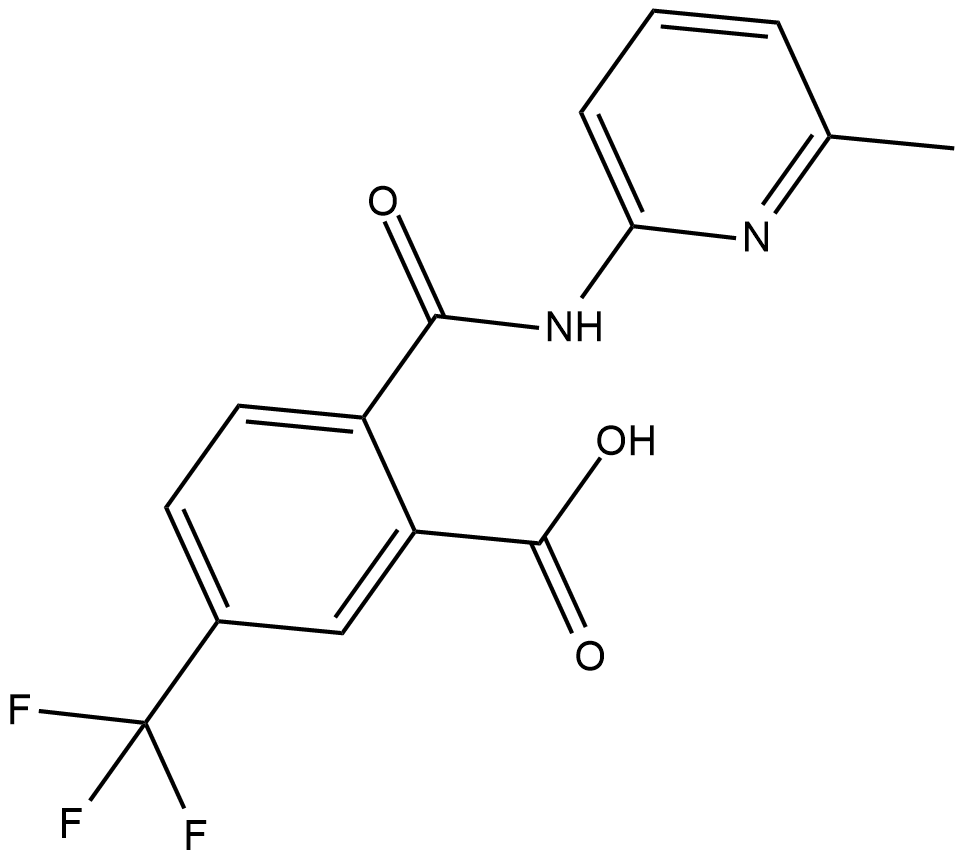
-
GC38586
AF40431
AF40431, der erste beschriebene niedermolekulare Ligand von Sortilin, hat einen IC50 von 4,4 μM und einen Kd von 0,7 μM.
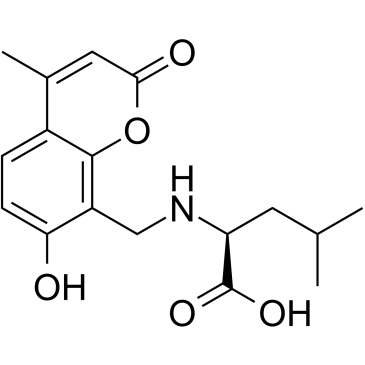
-
GC17784
JMV 449
JMV 449 ist ein potenter Neurotensin-Rezeptor-Agonist.
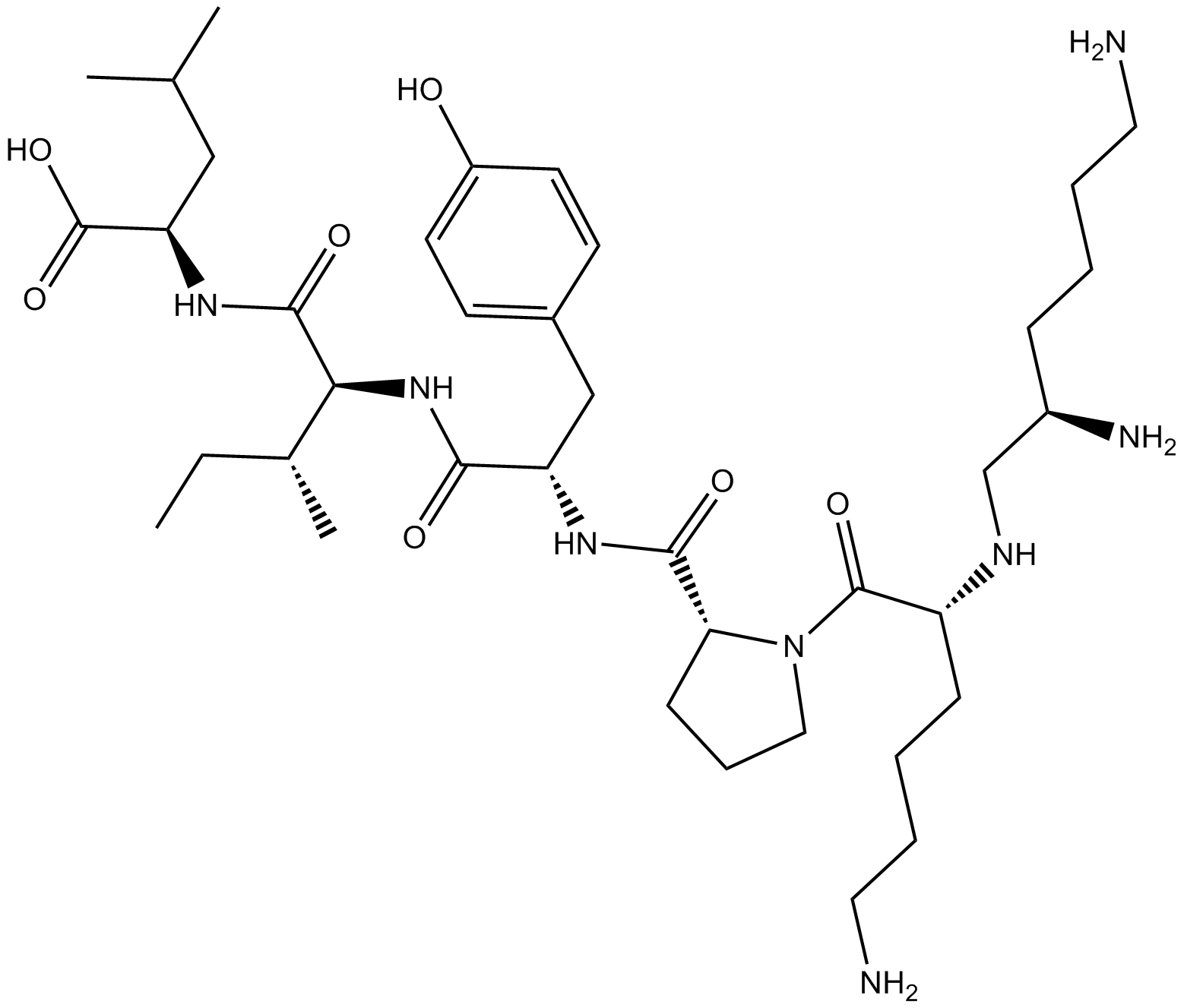
-
GC61800
JMV 449 acetate
JMV 449-Acetat ist ein potenter Neurotensin-Rezeptor-Agonist.
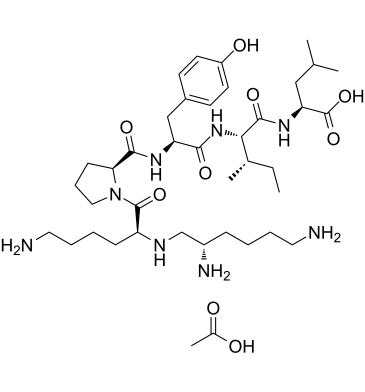
-
GC14971
Kinetensin (human)
Kinetensin (Mensch) ist ein Neurotensin-Ähnliches Peptid, das aus mit Pepsin behandeltem menschlichem Plasma isoliert wird.
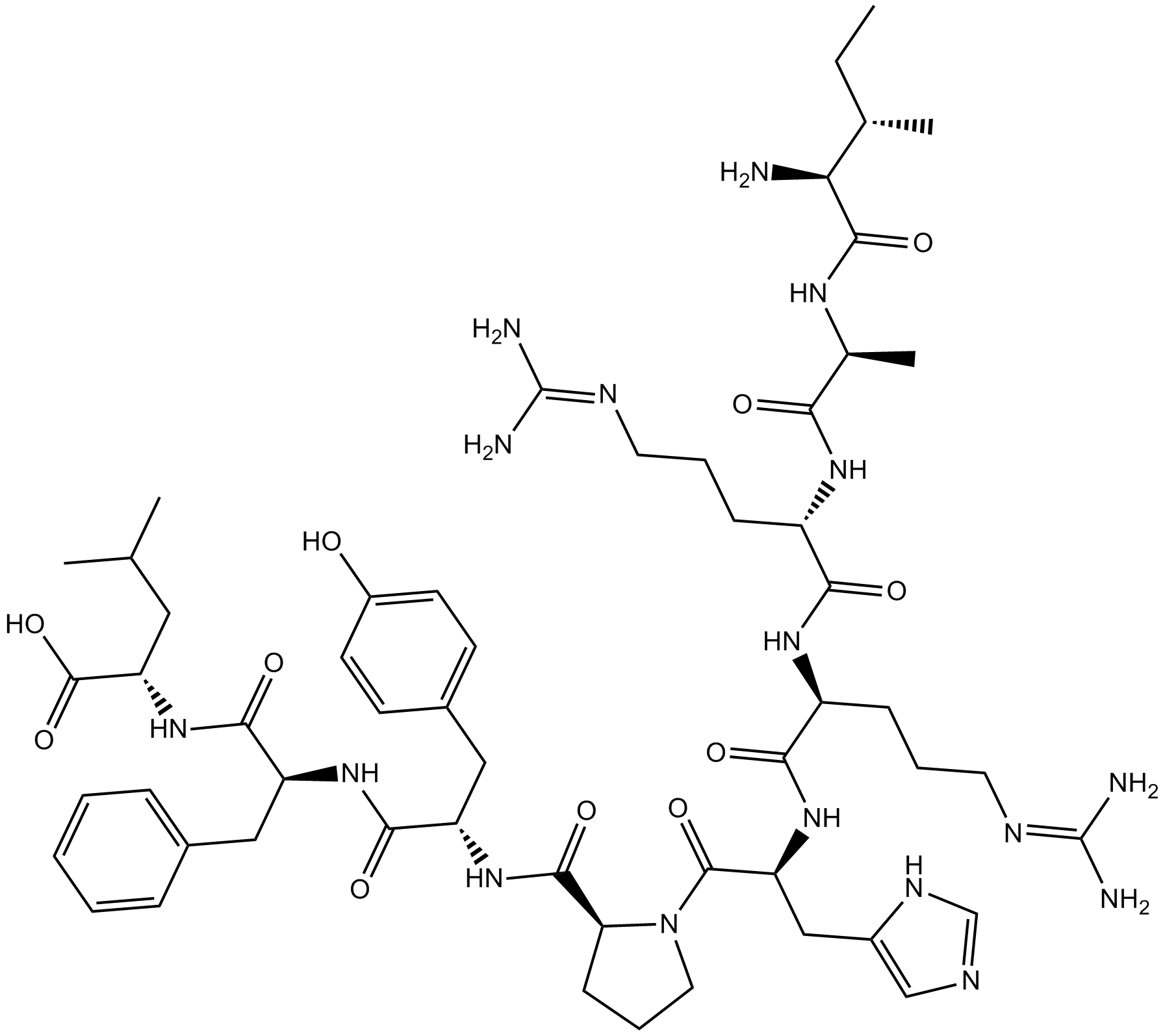
-
GC19441
Levocabastine (hydrochloride)
Levocabastin (R 50547) Hydrochlorid ist ein potenter und selektiver Histamin-H1-Rezeptor-Antagonist.

-
GC18216
ML314
ML314 ist ein potenter MolekÜlagonist von NTR1 (EC50 =1,9 μM); zeigte eine gute SelektivitÄt gegen NTR2 und GPR35, stimulierte jedoch nicht die Ca2+-Mobilisierung.
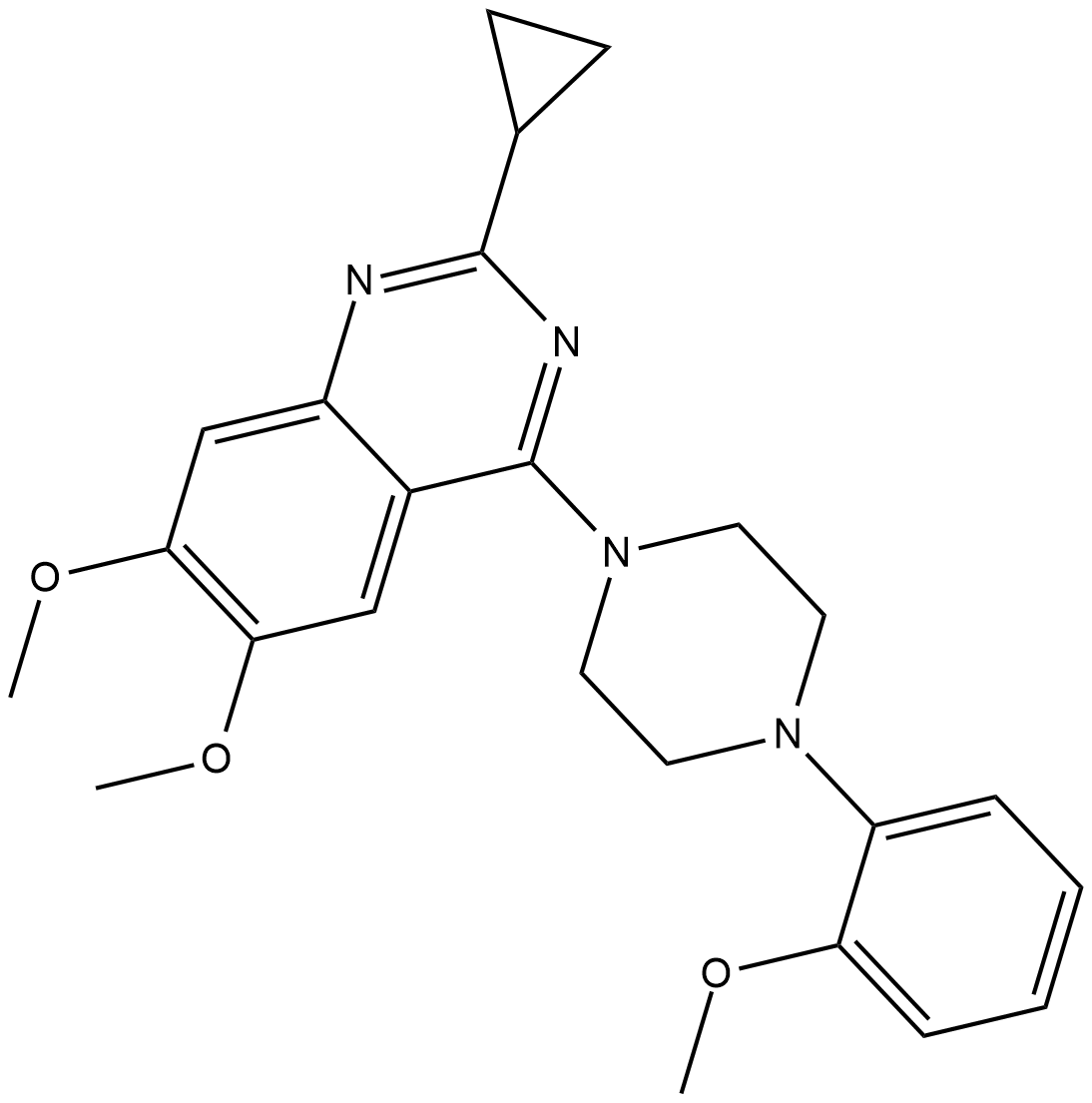
-
GC16357
Neurotensin
Neurotensin, ein Tridekapeptid aus dem Darm, wirkt als potentes zellulÄres Mitogen fÜr verschiedene kolorektale und BauchspeicheldrÜsenkrebsarten, die hochaffine Neurotensinrezeptoren (NTR) besitzen.
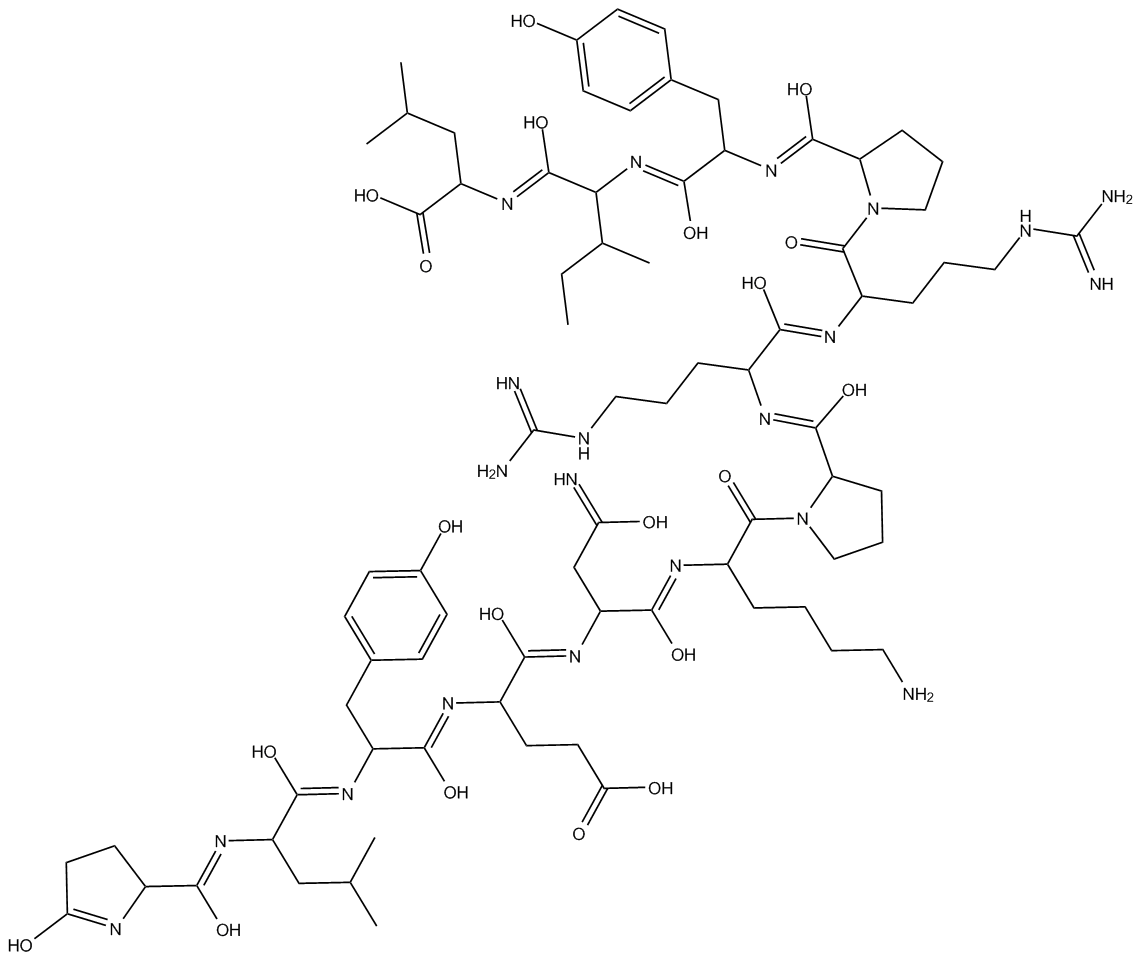
-
GC36729
Neurotensin(8-13)
Neurotensin (8-13) ist ein aktives Fragment von Neurotensin.
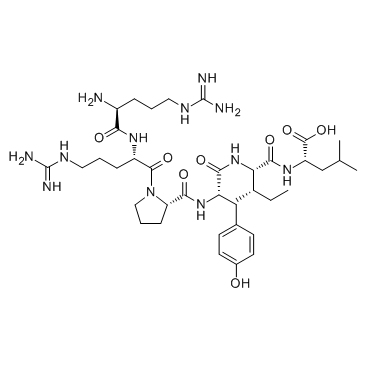
-
GC50164
NTRC 824
NTRC 824 (Verbindung 5) ist ein potenter, selektiver und Neurotensin-ähnlicher Antagonist des nichtpeptidischen Neurotensinrezeptors Typ 2 (NTS2) mit einem IC50 von 38 nM und einem Ki von 202 nM.
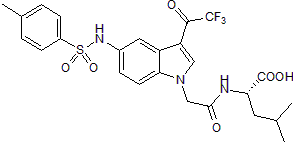
-
GC38847
SBI-553
SBI-553 ist ein potenter und gehirngÄngiger allosterischer NTR1-Modulator mit einem EC50-Wert von 0,34 μM.
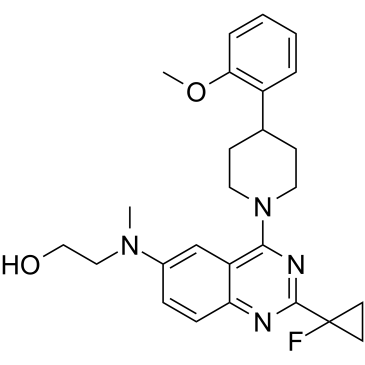
-
GC61739
SORT-PGRN interaction inhibitor 1
SORT-PGRN Interaction Inhibitor 1 ist ein potenter Inhibitor der Sortilin-Progranulin-Interaktion mit einer IC50 von 2 μM.
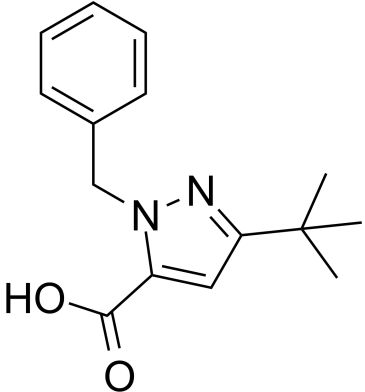
-
GC16683
SR 142948
SR 142948 ist ein oral aktiver, potenter und selektiver nicht-peptidischer Neurotensinrezeptor (NT1R)-Antagonist.
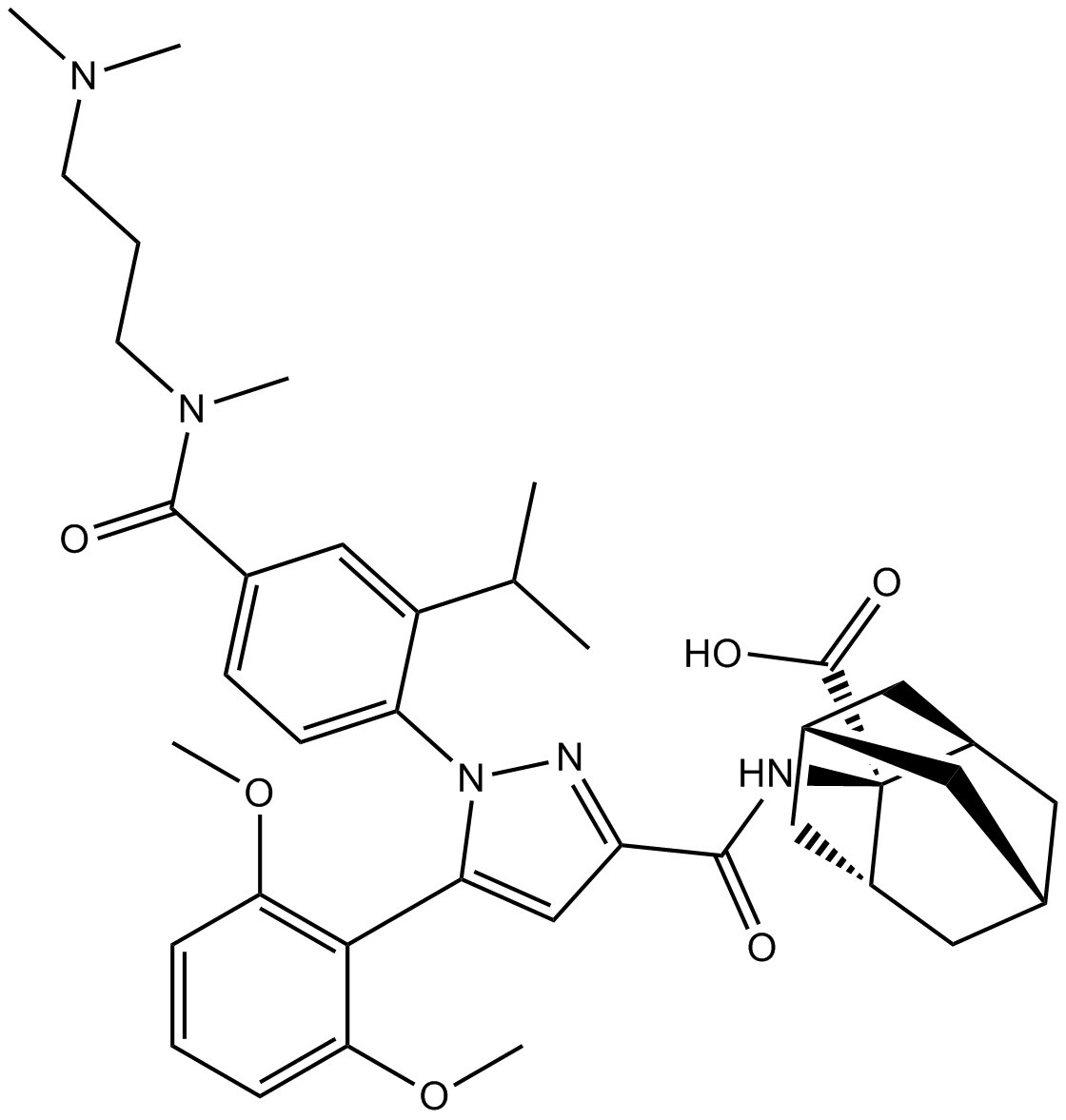
-
GC69940
SR 142948 dihydrochloride
SR 142948 Dihydrochlorid ist ein selektiver, nicht-peptidischer Antagonist des Neurotensin-Rezeptors (NT) mit oralen Aktivitäten. Die IC50-Werte in h-NTR1-CHO-Zellen, HT-29-Zellen und im Gehirn von erwachsenen Ratten betragen jeweils 1,19 nM, 0,32 nM bzw. 3,96 nM. SR 142948 Dihydrochlorid hemmt die Bildung von Inositolphosphat durch NT-induzierte Stimulation in HT-29-Zellen mit einem IC50-Wert von 3,9 nM. Es blockiert auch NT-induzierte Hypothermie sowie Analgesie und Umkehrverhalten in vivo. Aufgrund seiner Blut-Hirn-Schrankendurchlässigkeit kann SR 142948 Dihydrochlorid für die Erforschung psychiatrischer Erkrankungen eingesetzt werden.
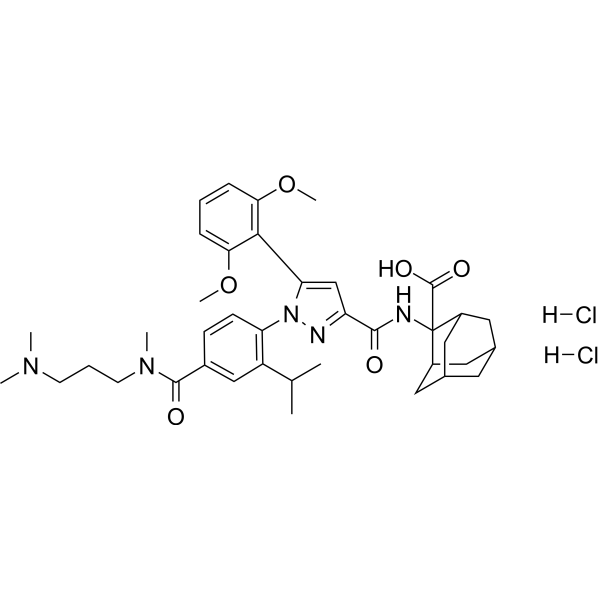
-
GC13242
SR 48692
nonpeptide neurotensin antagonist
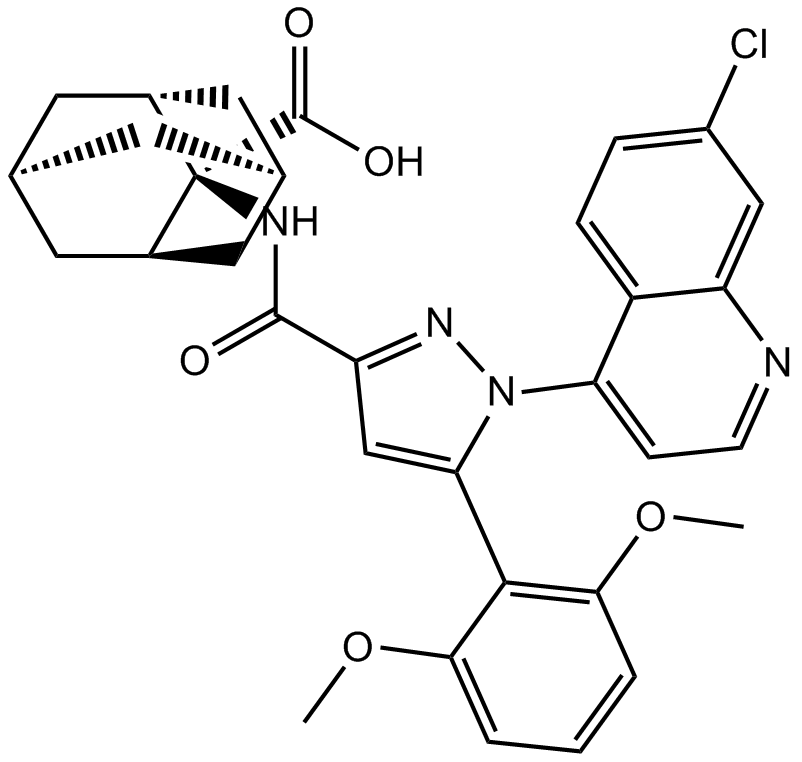
-
GC50096
TC NTR1 17
Selective NTS1 partial agonist
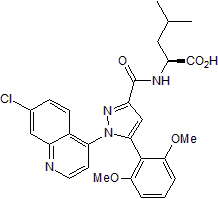
-
GC67786
THX-B
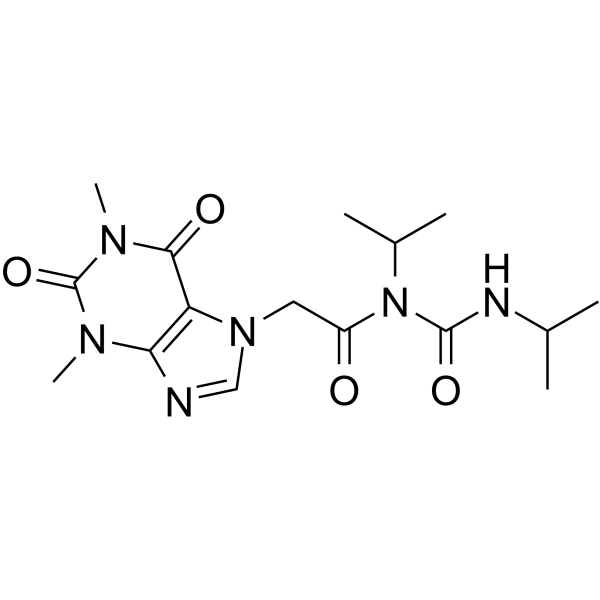
-
GC11333
Xenin 8
Xenin 8, ein C-terminales Octapeptid, ist ein biologisch aktives Fragment von Xenin.
